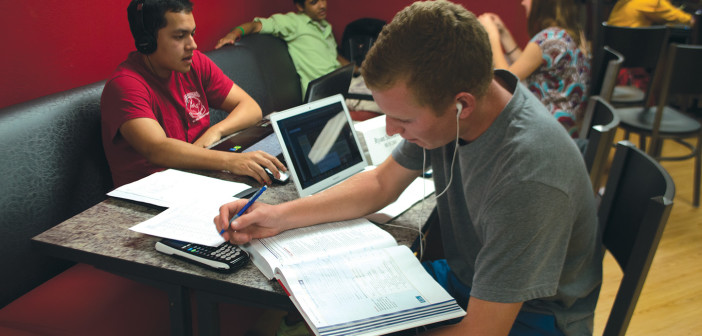Dom Simonctta
Contributing Writer
With many first-year student athletes kicking off their college careers this trimester, the North Central Athletic Mentorship Program aims to assist those in need in and out of the classroom.
The mentor program itself is an initiative that promotes current student athletes serving as role models for their peers. Sue Kane, assistant athletic director at the College, provides some insight as to what these mentors set out to accomplish.
“They provide first-year Cardinal student-athletes with valuable assets they can utilize in everyday life including time-management, social skills, and organizational skills,” said Kane. “The program has three main goals geared towards those athletes: maximize their academic and personal growth; support them as they pursue their academic goals leading towards graduation; and improve and impact their post-college life. It’s a wonderful opportunity for upper-classmen to positively influence the athletic community.”
From Kane’s perspective, since its inception, the College has reacted positively to the types of potential benefits the program has initially displayed up to this point.
“It was created in conjunction with the Academic Support Center and Athletic Department. Last year, it was piloted with the football team, and we liked the results we saw from the program,” she said. “We saw some gains in retention and GPA within the football program and decided to roll it out to all 23 sports.”
For student-athletes looking to become a mentor themselves, it isn’t as simple as wanting to get involved. After applying, the athletes must meet a specific set of requirements designated by the Academic Support Center. This year, while hundreds of applications were received, roughly only 50 of them were selected.
Colin Laughlin, an exercise science major and current player for the College’s baseball team, was one of those selected for the 2014-15 school year.
“I got the job by applying to be an EDGE tutor. Basically, you need to have a solid GPA and a good relationship with faculty,” said Laughlin.
Laughlin also suggests that the biggest requirement is the ability to be relatable and connect with the students he’s mentoring. If that’s truly the case, his past experiences should come in handy as the year continues to progress.
“This program has a lot of potential to ease the transition process first-year athletes have to make,” he said. “I struggled in my first term at the College, and I want to be able to help student-athletes avoid the mistakes I made. I really want to help them bypass the difficult transition that comes with NCC.”
For current mentors as well as those who may be interested in participating in the future, Laughlin has an important word of advice.
“Use previous struggles as something you can learn from and teach, not something that is going to hinder your ability to be a mentor.”
With the fall term just getting underway, Kane, Laughlin, and the rest of the College are hoping to see even more improvement as the program continues to develop.

